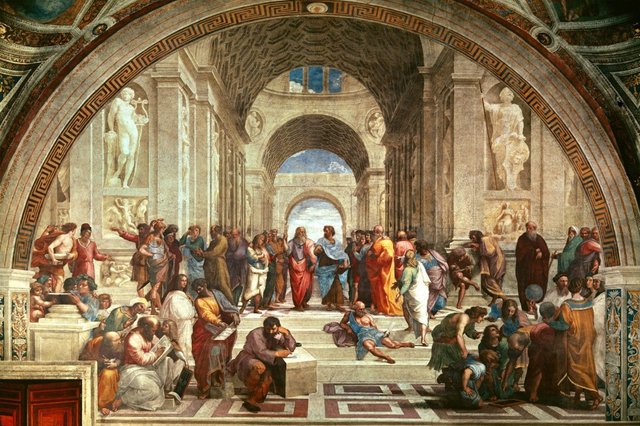Reading the Western Canon
Canon, defined as a collection or list of sacred books accepted as genuine.

Reading has always been an essential part of my life. Some of my earliest memories are of my grandmother reading. My maternal grandparents had an impressive book collection made up of classic literature, poetry, and histories. They loved books and would always give each other books as presents. After my grandfather's death, my family moved to the United States and most of the books were left behind. But, even now, all the way in Japan I have a well-preserved copy of Mihai Eminescu's poems dated and inscribed with my grandparent's names.
My father was also a voracious reader. From him, I got my love of adventure and mystery novels. As a kindergartener he got me hooked on Jules Verne and stories of lost worlds, sailing ships, and submarines. A common occurrence in my house was coming home from school and finding a stack of books waiting for me. Histories, novels, biographies, everything and anything he found interesting while digging through the local used book store. Some of them are still on my shelf, used, ugly things of no particular value to anybody but me.
Unfortunately, my love of history and literature did not translate into a good relationship with education. My high school experience was defined by boredom and tedium. By my senior year, I would regularly skip school and spend the whole day at the nearby Border's bookstore reading. At one point I took a senior International Literature course and the teacher, one of the few good ones, handed me a copy of The Brothers Karamazov and told me not to bother coming to class until I finished because the rest of the curriculum would bore me.
My college experience was even more disappointing. The few English, Literature, and Creative Writing classes I managed to take were disappointing. I remember an introductory literature course where the dreadlocked grandma professor informed the class on day one that she would only focus on feminist literature through a feminist perspective. I walked out. Another English class I took a few years ago for a professional requirement consisted of the professor putting on videos and having marijuana reeking students complete fill in the blank worksheets. I hung in there because my work required it but otherwise considered a tremendous waste of time and money.
I consider myself an autodidact. I try to read, write and learn as much as possible. While I lack a formal education I will claim with reasonable confidence that my grasp of history, philosophy, and literature is well above the average American's, and I'm pretty sure I can hold my own against most diploma holders.
Unfortunately, I suffer from some significant insecurities due to my lack of formal education. Yes, I've read everything from Ovid to Hemingway. Yes, I can talk about Dostoevsky for hours on end. But what did I miss?
So, I decided to remedy this situation by doing what I do best. Reading. I going to treat my personal education like a workout routine, focusing on base building and linear progression. I will use Harold Bloom's The Western Canon as a roadmap for reading through the greats of Western Literature.
The Western Canon is a discussion and critique outlining twenty-six writers critical to Western literature. My goal is to spend the next few years reading through the critically recommended works vastly expanding my knowledge of literature and hopefully giving me a solid foundation that I lack due to skipping school.
The twenty-six writers Bloom considers critical to Western literature:
- William Shakespeare
- Dante Alighieri
- Geoffrey Chaucer
- Miguel de Cervantes
- Michel de Montaigne
- Molière
- John Milton
- Samuel Johnson
- Johann Wolfgang von Goethe
- William Wordsworth
- Jane Austen
- Walt Whitman
- Emily Dickinson
- Charles Dickens
- George Eliot
- Leo Tolstoy
- Henrik Ibsen
- Sigmund Freud
- Marcel Proust
- James Joyce
- Virginia Woolf
- Franz Kafka
- Jorge Luis Borges
- Pablo Neruda
- Fernando Pessoa
- Samuel Beckett
I don't plan on sticking to a rigid schedule but to meander through the material at a leisurely pace, making my way through the list in between my regular reading. If a topic interests me I will branch off and focus on that subject for how ever long it pleases but the goal will be to accumulate a significant grasp of the material.
Of course, the idea is to write about and discuss the project on here, hopefully sparking some interesting discussion and debate.
Great idea ! Like you I have long regretted the gaps in my reading . A few years ago I decided to go right back to the beginning with the Greeks and Romans and carry on from there. At first I was really strict with myself and read strictly one period at a time but after realising that It would probably take me a decade to reach Shakespeare (and that I was getting serious Greek Tragedy indigestion) I decided to hop about time a bit .
I am looking forward to following you on your project :-)